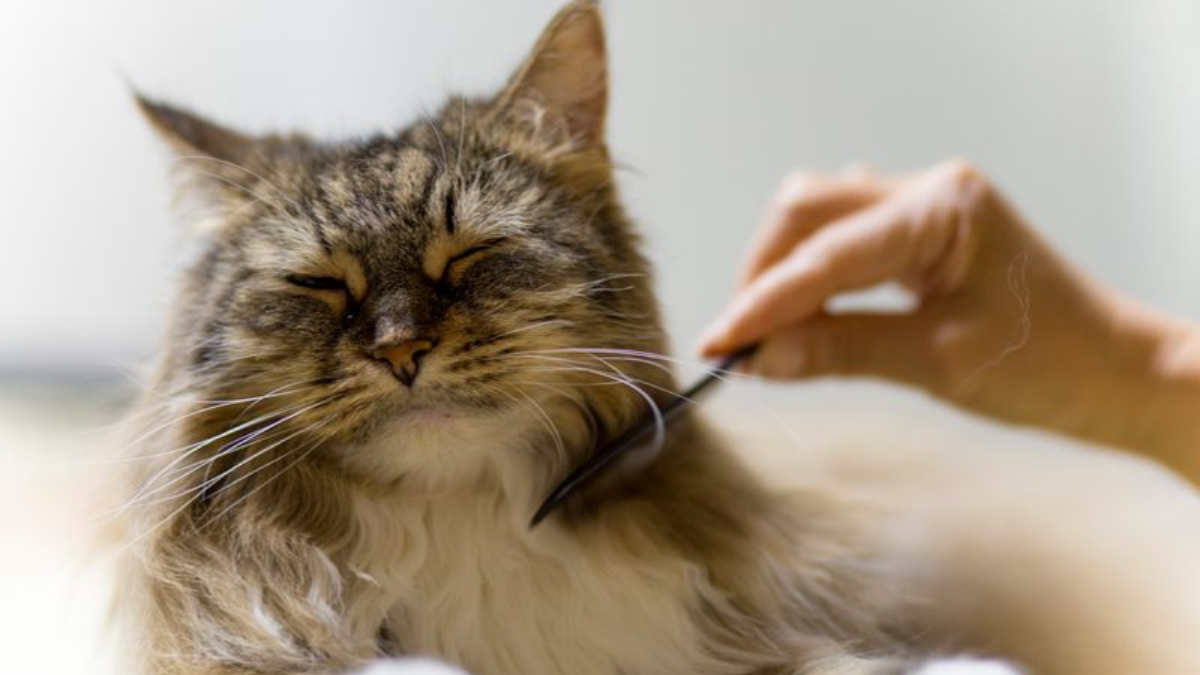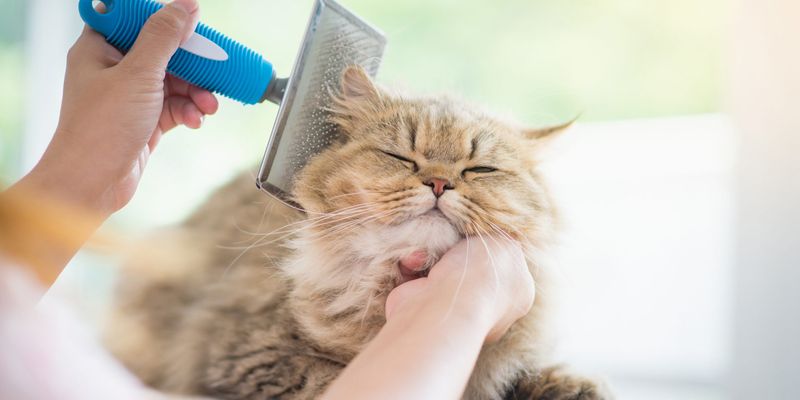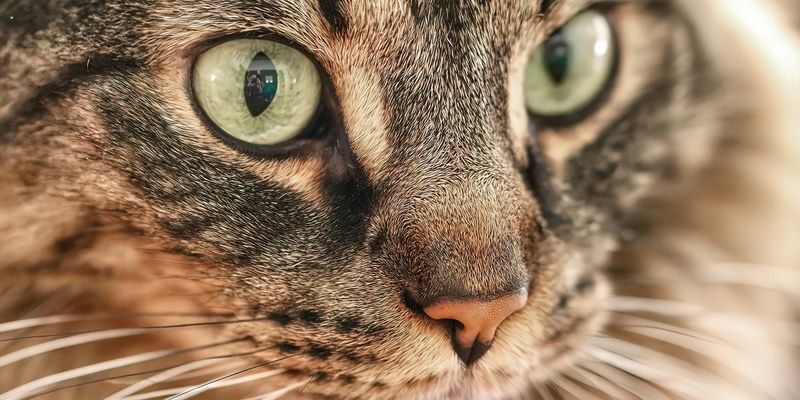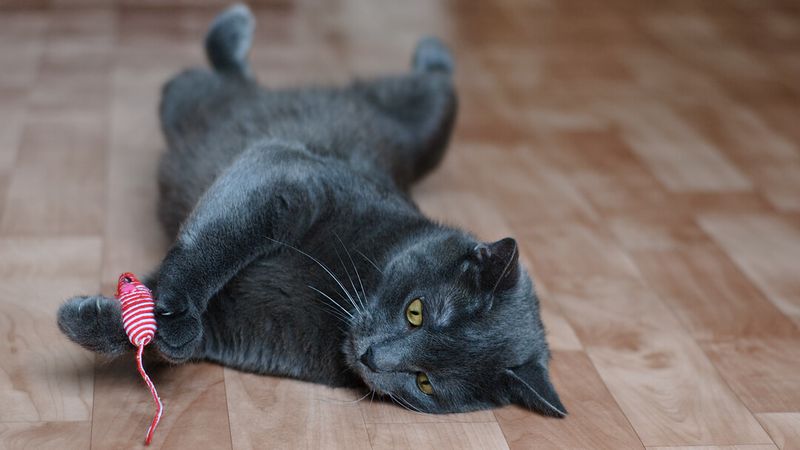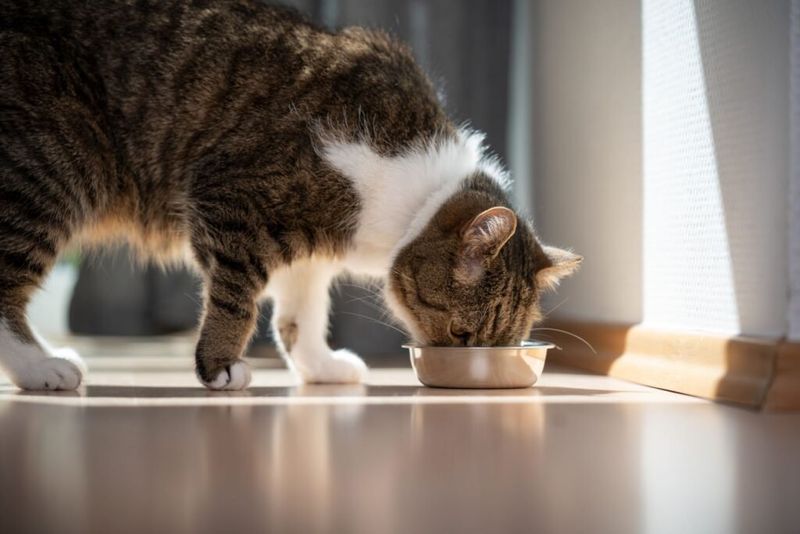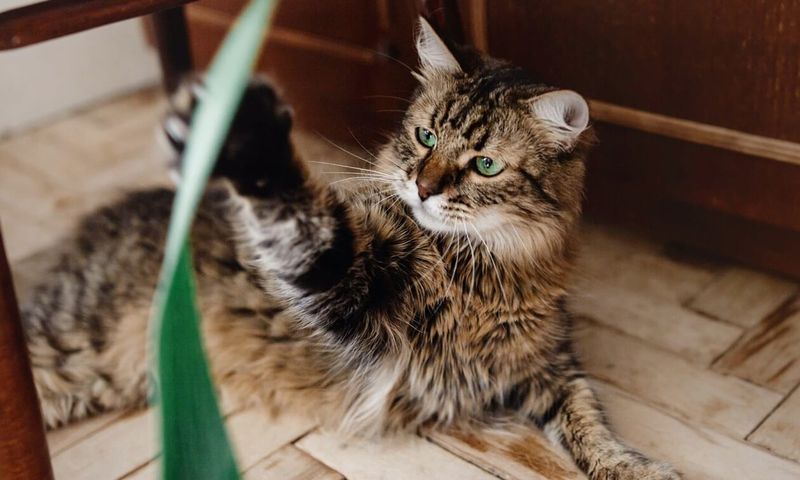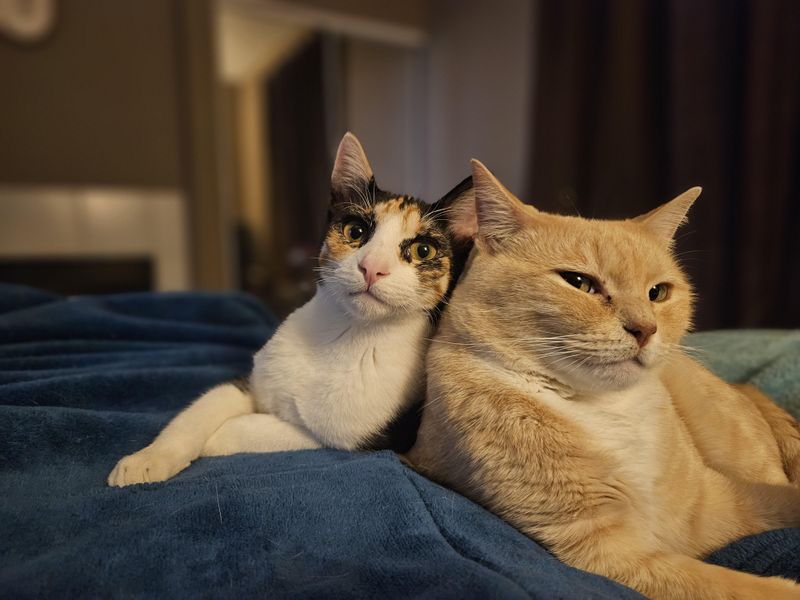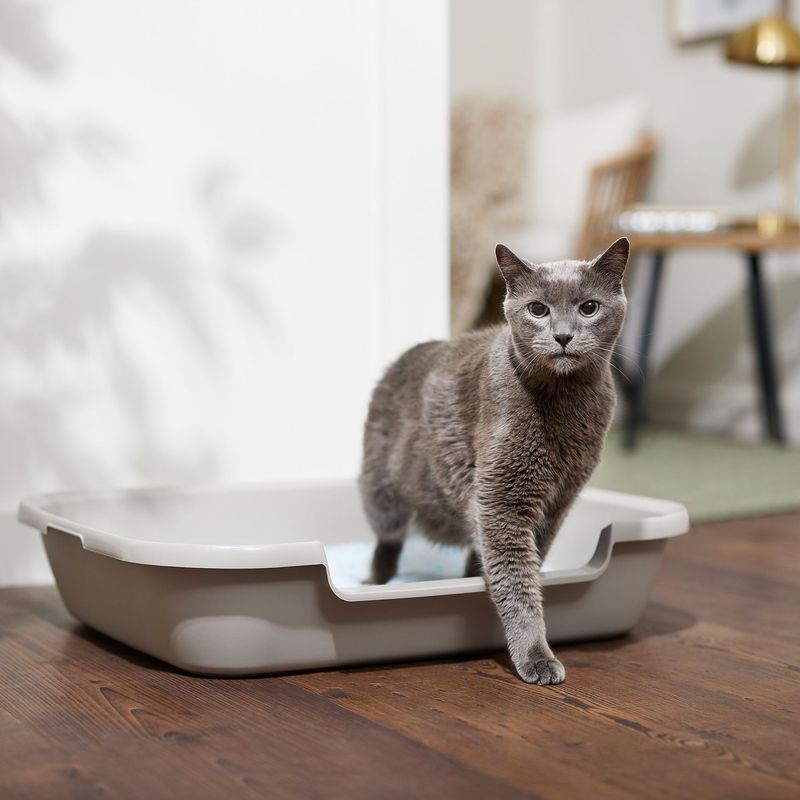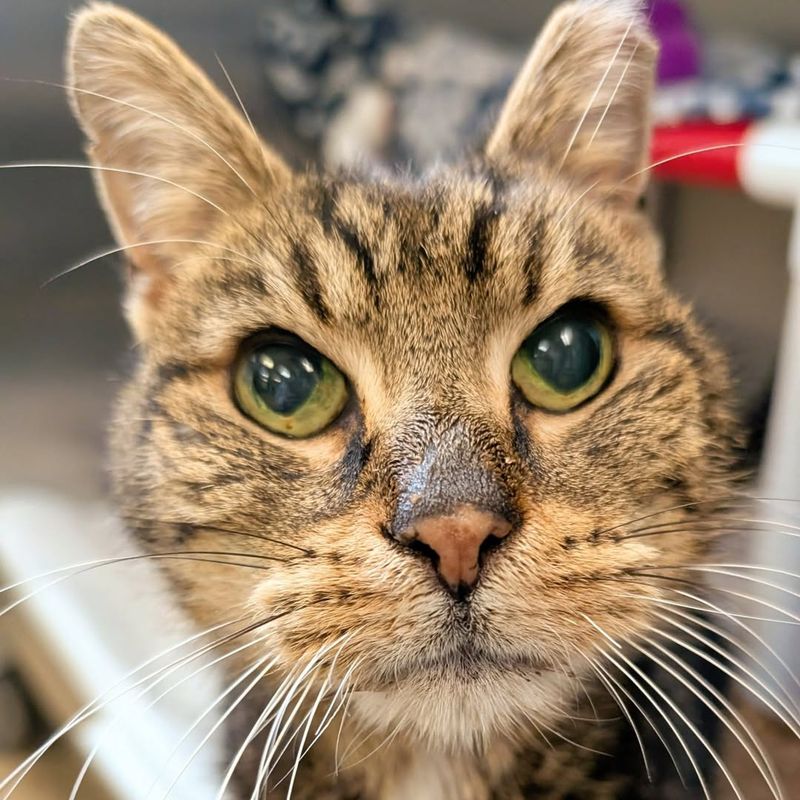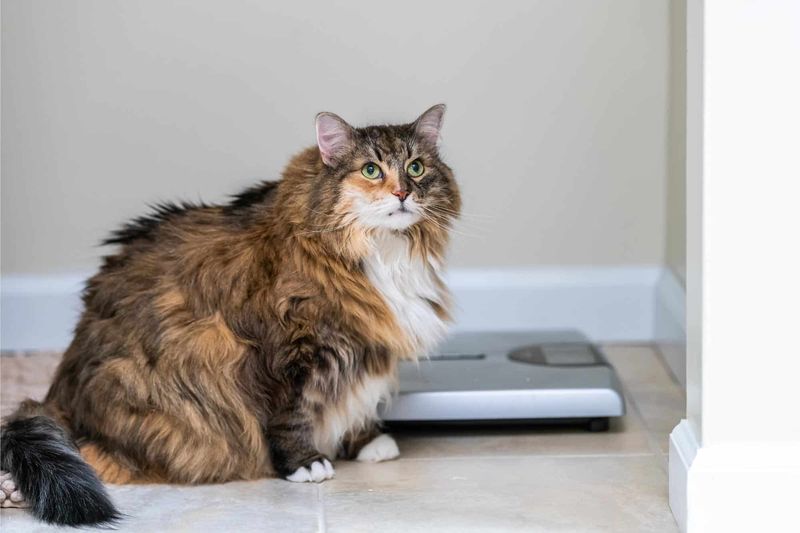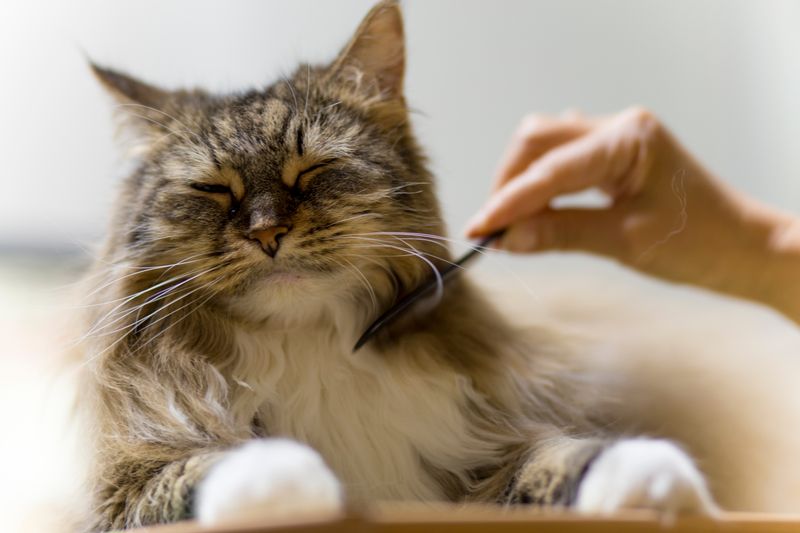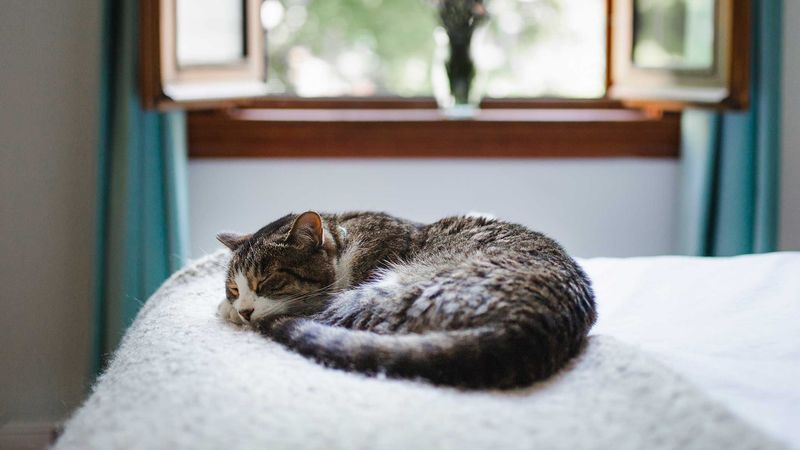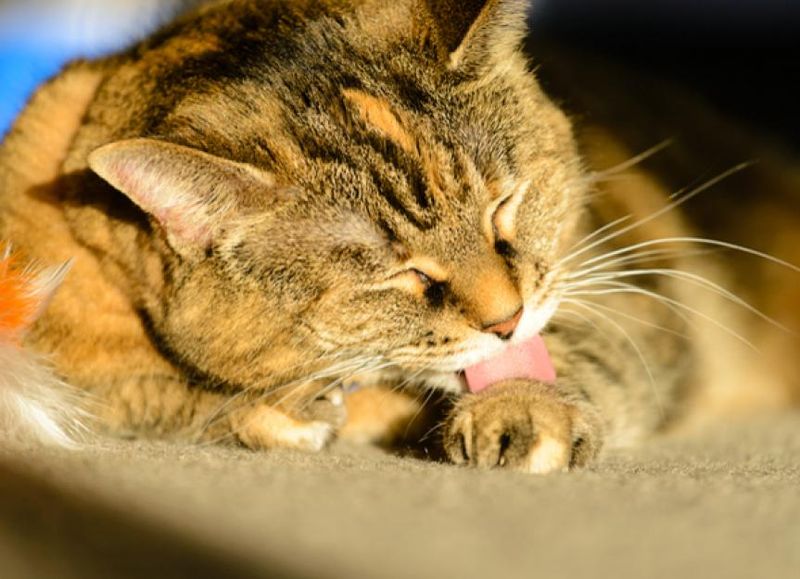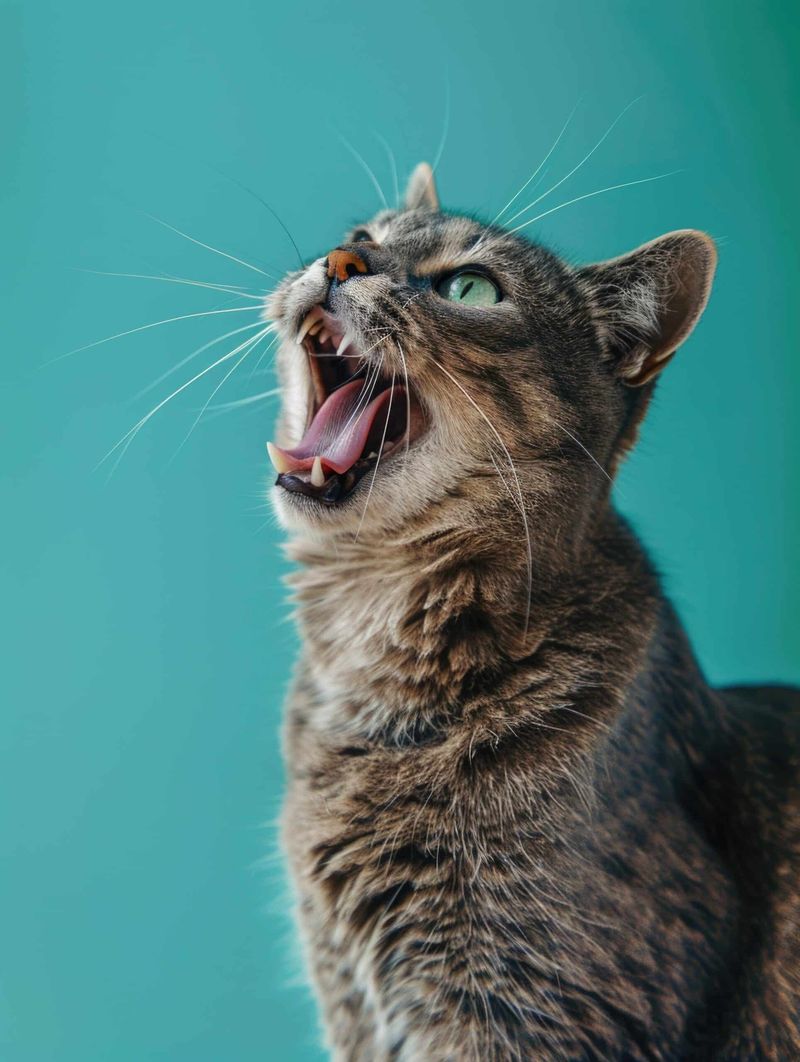📖 Table of Content:
- 1. Silky and Shiny Coat
- 2. Bright and Clear Eyes
- 3. Playful and Energetic
- 4. Healthy Appetite
- 5. Good Mobility
- 6. Social and Affectionate
- 7. Maintained Litter Habits
- 8. Responsive and Alert
- 9. Steady Weight
- 10. Soft and Flexible Skin
- 11. Comfortable Sleeping Patterns
- 12. Regular Grooming
- 13. Vocal Communication
As cats enter their senior years, subtle changes often begin to appear in their behavior and physical condition. These shifts can signal the natural process of aging or the need for additional care and attention. Understanding what to look for helps maintain their quality of life.
Older cats may sleep more, move less, or show changes in appetite or grooming habits. Some become more affectionate, while others prefer extra solitude. Each of these signs can offer insight into how they’re feeling and what they need.
Providing a calm, supportive environment becomes increasingly important as they age. Small adjustments to daily routines, diet, or comfort can make a significant difference. Recognizing these indicators early ensures a happier, healthier life for aging feline companions.
1. Silky and Shiny Coat
A cat’s coat can speak volumes about its health. If your aging feline maintains a silky and shiny coat, it’s a positive indication of good health. This lush fur often signals proper nutrition and an attentive grooming routine. However, if you notice the coat becoming dull or matted, it might be time for a vet visit.
Regularly brushing your cat not only keeps its coat in top condition but also strengthens your bond. Cats are meticulous groomers, and with a little help from you, their coat can remain a crowning glory through their senior years.
2. Bright and Clear Eyes
Eyes are the windows to a cat’s soul—and health. Bright and clear eyes in an older cat often mean they’re in good shape. A sparkle in their gaze is a promising sign that they’re feeling well. Conversely, cloudiness or discharge could require a vet’s attention. Regular checks can help catch issues early on.
Encourage your cat to play with toys that stimulate their vision, supporting their eye health. Keeping an eye on their eyes can be a crucial part of ensuring a happy, healthy life.
3. Playful and Energetic
Even in their twilight years, some cats retain a playful spirit. A lively and energetic demeanor indicates your cat is aging gracefully. Regular play sessions can help maintain their physical and mental health. If your cat seems less inclined to play, it may need more rest or a vet checkup.
Keeping your cat engaged with toys or a simple string can invigorate their senses. This playful behavior not only delights but also fosters a deeper connection between you and your feline friend.
4. Healthy Appetite
When a cat eats well, it’s often a strong indicator of wellness. Seniors who maintain their appetite are more likely to have stable energy and weight. A drop in food interest or fussiness could point to underlying issues worth checking out.
Offering a balanced diet is key, ensuring it’s suited to their age and health needs. Their culinary joy can be a delightful routine, reflecting their overall health and happiness.
5. Good Mobility
For aging cats, mobility speaks volumes about their well-being. Cats who can jump, play, and navigate stairs effortlessly are maintaining strong muscles and healthy joints. However, if they start to show signs of stiffness or avoid movement, arthritis or other health issues may be at play.
Providing soft bedding and gentle play can support their joints. Observing their movement can help ensure they enjoy a pain-free life.
6. Social and Affectionate
Social interaction is a key part of a cat’s life. If your senior cat continues to seek out affection and enjoys company, it’s a positive sign. Purring during cuddles or following you around shows they’re emotionally connected.
Reduced social behavior may indicate discomfort or health issues. Spend quality time with your cat, offering love and attention. Their affectionate nature can provide comfort and joy in their golden years.
7. Maintained Litter Habits
Litter box habits offer insights into a cat’s health. Consistency in using the litter box indicates they’re in good health. Changes in litter habits can signal health problems like urinary infections.
Keeping the litter box clean encourages regular use. Monitoring their habits helps catch potential issues early. This routine is a vital part of maintaining their overall well-being.
8. Responsive and Alert
How a cat reacts to its environment can reveal a lot about its health. Senior cats who are quick to respond to noises or movements are often in great shape. A heightened interest in their surroundings is a clear sign that they’re alert and content.
A decrease in responsiveness could indicate hearing or cognitive issues. Engage them with sounds or toys to keep their senses sharp. Their attentiveness can be a joyful aspect of companionship.
9. Steady Weight
Maintaining a stable weight is critical for senior cats. If your cat’s weight remains steady, it’s a sign of balanced nutrition and health. Sudden weight changes could point to underlying health issues. Regular vet checkups can help track their weight and overall condition.
Providing a diet that matches their age and activity level supports their well-being. Their weight is an essential measure of their health journey.
10. Soft and Flexible Skin
Aging cats can have soft and flexible skin, often indicating good hydration and health. If their skin is supple and returns swiftly when pinched, it’s a good sign.
Dry or flaky skin may need veterinary attention. Regular grooming helps keep their skin healthy. Observing their coat and skin condition is an important part of monitoring their overall well-being.
11. Comfortable Sleeping Patterns
Older cats often enjoy extended naps, a normal part of aging. Comfortable and regular sleeping patterns suggest they’re relaxed and healthy. Disrupted sleep might indicate discomfort or health issues requiring attention.
Providing a warm and comfortable sleeping area enhances their rest. Observing their sleep can provide insights into their comfort and happiness.
12. Regular Grooming
A cat’s grooming habits are an important indicator of its health. When an older cat continues to groom regularly, it suggests they’re feeling comfortable and well. However, a lack of grooming may point to pain or other health issues, such as dental concerns, requiring a vet’s care.
Helping with grooming can strengthen your bond and ensure their comfort. Their grooming habits mirror their health and happiness.
13. Vocal Communication
Cats express themselves vocally, and senior cats are no exception. If your aging cat continues to communicate, it’s a sign they’re engaged and content. Changes in vocalization could indicate discomfort or a health issue.
Listening and responding to their vocal cues fosters understanding and connection. Their meows are a delightful communication channel, enriching your relationship.
